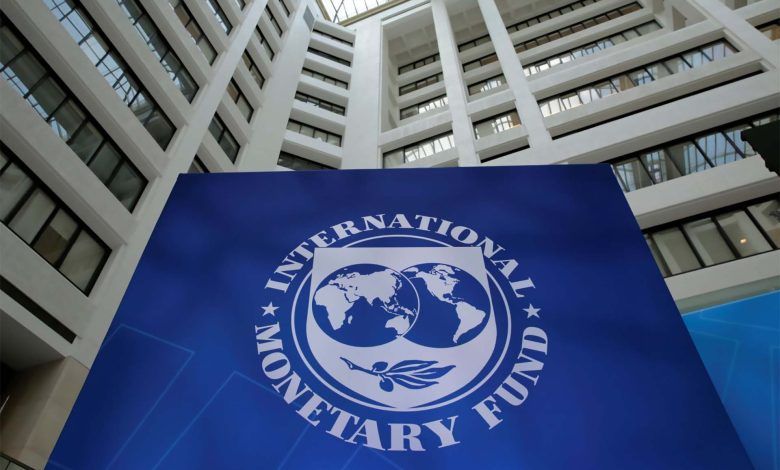
The International Monetary Fund (IMF) has sounded the alarm over Nigeria’s fiscal outlook for 2025, cautioning that without urgent revision of budget targets, the country faces a mounting financial crisis.
In its latest Article IV consultation report released on Wednesday, the IMF highlighted significant risks that Nigeria could exceed its projected fiscal deficit for the year, driven by falling oil prices, reduced production levels, and challenges in executing capital expenditures.
The report urged Nigerian authorities to promptly adjust fiscal policies and budget assumptions to better reflect current economic realities.
“Ensuring that fuel subsidy savings accrue fully to the government could help maintain a neutral fiscal stance, with expected savings estimated at two percent of GDP. If these savings do not materialize in the second half of 2025, and given that planned tax reforms are unlikely to yield significant revenue gains within the year, fiscal adjustment will need to come from spending cuts primarily recurrent expenditure to protect investments that support growth,” the report stated.
The IMF’s analysis revealed that Nigeria’s fiscal deficit could reach 4.7 percent of GDP in 2025, considerably above the government’s budgeted target.
“Absent timely policy actions, the fiscal deficit is projected to overshoot the budget forecast,” the report warned, emphasizing the urgent need for budget realignment.
Originally, Nigeria’s 2025 budget was based on optimistic hydrocarbon revenue projections, but the IMF noted these assumptions have become unrealistic due to the global oil price slump and ongoing uncertainty in the oil sector.
“The budget was set with optimistic hydrocarbon revenue forecasts even before prices began declining in April 2025,” the report noted.
In addition to revenue shortfalls, the IMF expressed concerns over the government’s ability to implement its ambitious capital expenditure plans, warning that historical challenges in executing infrastructure projects could result in underperformance.
“Capital expenditure targets are likely to exceed Nigeria’s implementation capacity given past execution difficulties,” the IMF cautioned, suggesting delays in infrastructure development could worsen fiscal pressures.
In response, the IMF recommended immediate fiscal policy adjustments and a formal budget revision. The Nigerian government has indicated intentions to revise the budget downward in light of lower oil prices, while boosting hydrocarbon production and continuing efforts to increase revenue collection.
However, the IMF stressed that without a formally revised budget and updated fiscal targets, uncertainty will persist regarding the country’s fiscal stance and financing needs.
The report advocated for a neutral fiscal stance in 2025, balancing macroeconomic stability with continued investment in growth-enhancing sectors.
Beyond fiscal issues, the IMF underscored the critical need to expand social safety nets to protect vulnerable populations amid rising poverty and food insecurity.
It called on the government to accelerate social support programs to cushion the impact of economic hardships on the most at-risk Nigerians.
The IMF also emphasized the importance of diversifying Nigeria’s revenue base away from oil dependency by broadening the tax base and enhancing revenue mobilization.
Although tax reforms including modernizing value-added tax and corporate tax systems are underway, the IMF noted these measures would require time before generating significant fiscal gains.
Nigerian officials expressed commitment to adjusting the 2025 budget and implementing reforms to address fiscal vulnerabilities. The IMF report noted, “Authorities are confident that higher oil production and in-year budget adjustments will offset lower oil prices. They also plan to ensure fuel subsidy savings benefit the budget, intensify domestic revenue mobilization, diversify financing sources, and promote greater private sector participation in infrastructure delivery.”
The IMF also highlighted the risks associated with Nigeria’s rising public debt, which climbed to 53 percent of GDP in 2024 from 49 percent in 2023, driven by fiscal deficits and exchange rate pressures.
Without effective fiscal reforms, Nigeria’s debt burden could escalate further, straining public finances.
The IMF urged exploring alternative financing options such as public-private partnerships and pre-export financing to ease external borrowing pressure, while cautioning that new financing mechanisms must be carefully managed to avoid worsening debt vulnerabilities.
To improve fiscal management, the IMF recommended prioritizing capital expenditure on projects with high economic returns and enhancing public investment oversight.
“Improving fiscal forecasting accuracy for the 2026 budget will better support prioritization of initiatives,” the report added.
Despite concerns, the IMF recognized Nigeria’s recent economic reforms and progress in macroeconomic stability, commending the Central Bank of Nigeria’s tight monetary policy and banking sector reforms.
It also praised improvements in the foreign exchange market, noting a stabilized naira and inflation decline to 23.7 percent in April 2025 from 31 percent in 2024.
Fiscal performance improvements driven by stronger revenue collection, naira depreciation, and grants were acknowledged, though the IMF cautioned that challenges remain and reforms must continue for sustained growth and poverty reduction.
In a statement responding to the IMF report, the Federal Government reaffirmed its commitment to economic stability amid global uncertainties.
Director of Information and Public Relations Mohammed Manga quoted Finance Minister Wale Edun saying, “The government is focused on safeguarding reform gains and economic stability through vigilant implementation of the 2025 budget.”
Edun emphasized ongoing monitoring of global oil markets and trade conditions to mitigate risks while maintaining momentum toward inclusive growth.
The statement affirmed, “The Federal Government remains committed to sound economic management that fosters macroeconomic stability, broad-based growth, and improved living standards for all Nigerians.”
Separately, the World Bank has also cautioned that Nigeria’s 2025 federal budget is overly ambitious, warning that the government may need to rely on the Central Bank of Nigeria’s Ways and Means facility to cover revenue shortfalls.
The World Bank’s warning came during its latest Nigeria Development Update report presentation in Abuja. The 2025 budget, signed into law by President Bola Tinubu, totals a record N54.99 trillion, up from an initial N49.7 trillion proposal.
The fiscal plan allocates N13.64 trillion for recurrent expenditure, N23.96 trillion for capital projects, N14.32 trillion for debt servicing, and N3.65 trillion for statutory transfers, with a projected deficit of N13.08 trillion financed by domestic and external borrowing.
Key budget assumptions include a crude oil price of $75 per barrel, oil production of 2.06 million barrels per day, an average exchange rate of N1,400 per dollar, and an inflation target of 15 percent.
At the event, World Bank Lead Economist Alex Sienaert described the budget as “very ambitious” and expressed doubts about meeting some revenue targets despite strong gains in 2024.
However, Minister of Budget and Economic Planning Senator Abubakar Bagudu defended the budget, saying the projections are modest and aligned with Nigeria’s growth capacity.
“Budgets should be aspirational and not constrained by current challenges,” he argued, noting premium oil grades support optimistic price assumptions.





